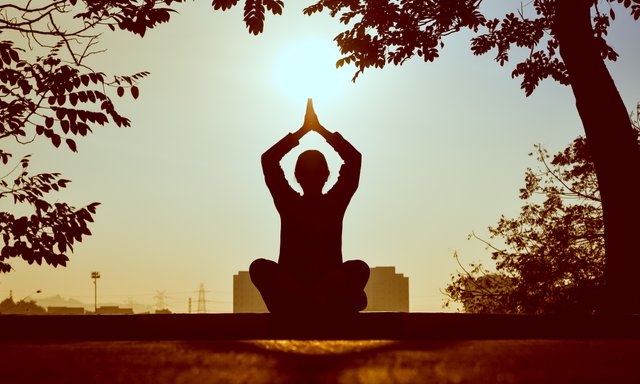Beginners guide to Meditation 101
Why Meditate?
During most of our waking lives, our minds are engaged in a continuous internal dialogue in which the meaning and emotional associations of one thought trigger the next.
If we’re still holding emotional pain or carrying baggage from our past, those feelings may pile up and then our mind may veer into criticism, self-pity, or worries about the future.
All day long our mind spins stories about our work, our health, our finances, our family, or that funny look the a stranger gave us. Often we’re not even conscious of the internal soundtrack going crazy in our mind and yet it is the greatest source of stress in our lives. Although the mind is capable of creating life-affirming stories, it has what neurosciences refer to as a negativity bias, a tendency to pay more attention to negative experiences than to positive ones.
Meditation is one of the best tools we have to counter the brain’s negativity bias, release accumulated stress, foster positive experiences and intentions, and enjoy the peace of present moment awareness.
How to Start Meditating?
Most people who try meditation for the first time have a very specific goal: to reduce stress. And it's a terrific tool for that. The bonus is that the calm you experience seeps into other moments of your day.
Before you know it, you find yourself with a greater, more-natural sense of balance, more compassion for yourself and others, and a more robust sense of humor. Over time, you may notice that you see the "big picture" of your life more clearly and are able to make better decisions about it. Meditation also can help you connect with your spiritual side and possibly to a higher power if your belief system includes that.
Begin to meditate by learning one simple technique and practicing it every day. There is no right or wrong way to do it; whatever resonates for you is the method you'll want to return to. For one, you can try learning to meditate using one of these beginner-friendly meditation apps like Headspace, Calm, The Mindfullness App etc.
Most of the apps come with a trail so you can decide if its for you or not. Personally i feel Headspace is worth it for the fee they charge.
Basics 101
Sit comfortably on a cushion or a chair. Don't slouch, but your back doesn't need to be ramrod-straight either. At first, you may want to try sitting against a wall to support your back. Use extra pillows under your knees or anywhere else to make you comfortable. Put on music, if that helps to calm you before beginning to meditate. Turn it off once you begin.
Set a digital (non-ticking) timer. Start with five minutes and work your way up to 10, then 15, and eventually 20.
It will probably take weeks or months to lengthen the time you practice. Try not to put yourself on a schedule. Whatever your pace, it's fine.
Breathe normally through your nose, with your mouth closed. Your eyes can be open or closed. Focus on the breath moving in and out of your nostrils, or on the rise and fall of your belly.
When you notice your mind wandering, bring it gently back to the breath. Be careful not to drift off; this will be tempting. While shutting off your mind is not the goal of meditation, neither is judging the meditative process. No matter what feelings or thoughts you have, simply bring your focus back to the breath again. And again.
Happy Meditating. Let me know your thoughts and share your experiences in the comments.
Looking forward to hear from you :)
